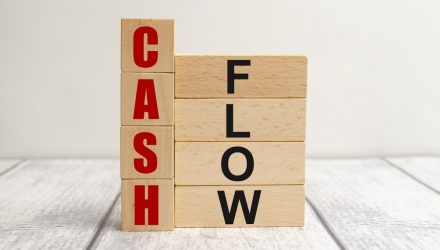While earnings and revenue are often the metrics by which most investors consider a company’s value, they can be vulnerable to accounting manipulation. But free cash flow is one metric that’s often ignored. It can also be a better gauge of a company’s growth potential.
Free cash flow is the cash left over after a company has paid expenses, interest, and taxes, and has reinvested in the business. It is used to buy back stocks, pay dividends, or participate in mergers and acquisitions. It also arguably provides a more comprehensive and accurate snapshot of a company’s potential profitability.
Michael Mack, associate portfolio manager at Victory Capital, said that free cash flow is a better indicator of a company’s longer-term profitability.
A More Relevant Metric
“It reflects actual cash generated by a business and is less subject to manipulation,” Mack said. “It’s ultimately what matters.”
Mack added that not only is free cash flow “a more relevant metric,” but if you look back over the past 30 years, the companies with “the highest free cash flow have tended to generate better performance.”1
Various non-cash items can influence accounting profits. However, free cash flow reflects the actual cash a company generates from its operations. It reveals how much money a company has available for reinvestment, debt reduction, dividend payouts, and other value-enhancing activities.
“Many advisors expect market volatility and earnings pressure in the second half of the year,” said VettaFi’s head of research Todd Rosenbluth. “They are turning to high-quality companies with strong fundamentals to help protect client portfolios while offering some upside.”
For more news, information, and analysis, visit the Free Cash Flow Channel.
1/ Analysis from 12/31/1991 – 5/31/2023 conducted on Equal Weighted S&P 500 Index constituents segmented into quintiles based on trailing free cash flow to enterprise value. The highest quintile returns were 15.61%, quintile 2 was 13.13%, quintile 3 was 11.80%, quintile 4 was 8.80% and quintile 5 was 7.14%, compared to the S&P 500 Index return of 9.77%.
Source: FactSet
Carefully consider a fund’s investment objectives, risks, charges and expenses before investing. To obtain a prospectus or summary prospectus containing this and other important information, visit www.vcm.com/prospectus. Read it carefully before investing.
All investing involves risk, including the potential loss of principal.
Opinions expressed are subject to change, are not guaranteed, and should not be considered investment advice.
VictoryShares ETFs are Distributed by Foreside Fund Services, LLC (Foreside). Foreside is not affiliated with Victory Capital Management Inc., the Fund’s advisor.
20230621-2959067

